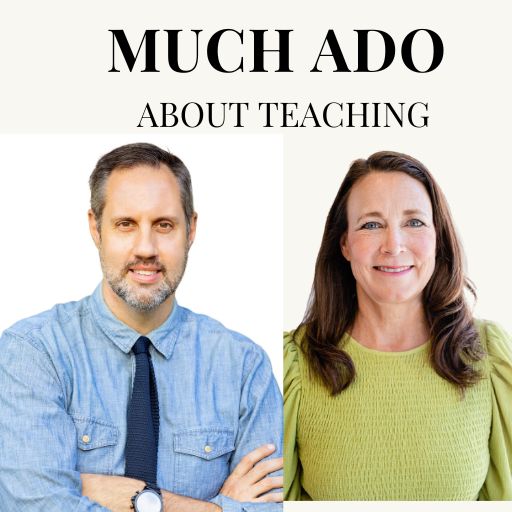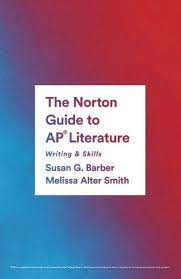Thanks for Megan Neville and Sarah Soper for their thoughts on the open ended question this year. Here’s a link to the prompts and also Sarah’s list of titles she encountered while reading.
AP® Literature Free Response Questions 2022




What did you notice in upper-half essays?
MN: First of all, these students clearly understood the concept of hierarchy–and perhaps teased out some of the nuances of complex social, familial, and/or economic structures in the texts they wrote about. Once students crossed the threshold of understanding what the prompt was looking for, effective structure was the most notable characteristic upper-half essays shared in common. They didn’t just meander; they followed a clear line of reasoning with intention and confidence. And on the note of confidence, I noticed after a while that most students who wrote primarily in active voice were much more convincing and compelling than most students who wrote primarily in passive voice. I realize we don’t necessarily score the students on their command of grammar, but this showed up enough that I find it worth noting.
SS: This year, perhaps more than years before, Q3 seemed quite accessible for students to score in the upper half, and I was pleased with how many excellent essays I read. For an essay to score in the upper half for a Q3 it’s essential that it has 2 things: (1) a claim about the prompt itself – this one was about a hierarchy – and (2) a connection to larger themes or ideas in the novel (the meaning of the work as a whole). Then, successful essays used small moments in the text to illustrate how the author showed both the hierarchy as well as how it connected to major themes.
What did you notice in lower-half essays?
MN: Lower-half essays tended to include lots of plot summary without any sort of connection drawn back to the claim the writer was attempting to support. They involved lots of oversimplification and generalization; in many cases, they only made a single point rather than using multiple claims with multiple pieces of evidence and commentary for each. Often it felt like the student was reaching, but simply didn’t have the specifics to prove what they wanted to prove. Another thing I noticed in lower-half essays was a need for stronger vocabulary. Students would attempt to discuss concepts such as agency, hegemony, etc. but lacked the words to describe the abstractions. This seemed to cause many students to back out of what would have otherwise been great discussions.
SS: Lower half essays tended to do one of two things. The first one is NOT making a connection with the prompt and the meaning of the work as a whole. (Or perhaps adding it on at the very end). The second was being very general or vague and summarizing the book overall. And one final thing that caught me a bit off guard was the amount of students who tried to discuss literary devices in their Q3 essays. Now, of course, discussing symbolism or characterization is fine, but when students tried to discuss diction or imagery, it was just confusing. I’m wondering if students were thinking of Q1 and Q2 when they wrote these.
What makes for a strong line of reasoning?
MN: Many aspects of writing can contribute to a strong line of reasoning, but this year what I noticed most was the presence or absence of effective transitions. Whether they do so with a single words or entire sentences, students need to make clear the relationships among and progression of their ideas.
SS: A strong line of reasoning begins with a strong thesis, so forming a good thesis statement is absolutely crucial. In a Q3, the best thesis statements discuss both the prompt’s topic as well as the larger themes of the novel. Writers with the most successful lines of reasoning continued to interweave this throughout the essay’s entirety as well as using transitional phrases to guide the reader through the essay.
Let’s talk sophistication . . .
MN: In order to earn the unicorn point, the sparkle point, or whatever you may call it in your own classroom, the sophistication has to be sustained. It can’t just be a single spark or an afterthought: it needs to be a slow burn that grows and flourishes. I noticed many students grasping for the sophistication point by adding in a contextual placement or alternate viewpoint, but unfortunately too often they just tacked it on at the end of the essay without any sort of development or effective meshing with points they’d already made. Additionally, one of the most beautiful things I got to see during this year’s reading was that a handful of students managed to stretch beyond basic organization templates. (i.e. eschewing the five-paragraph essay).
SS: I happily awarded far more sophistication points this year than I did in 2021. The type of sophistication that seems to work best for Q3 is “situating in a broader context.” This, of course, lends itself to texts where society and time period play an important role and requires a student who understands this well enough to articulate it. I also read some successful essays that discussed complexity and tensions, such as power dynamics with gender. Another small thing I noticed is that quite a few times, these essays chose to focus on perhaps the less obvious character, and could then explore the tensions easier. One example that stands out was a Gatsby essay that discussed Nick as the character impacted by the hierarchy. Rather than discussing the obvious Gatsby and how the hierarchy eventually led to his death, this essay focused on Nick and how he was disgusted with the upper class and tied this into the excess of the 1920s.
Any teaching points connected to what you learned at the reading?
MN: Keep teaching amazing literature! In the 1200 or so essays I read throughout the week, I encountered students engaging with approximately 300 unique texts. Please make sure students understand from the very beginning of the year that they do NOT need to pick something from the list of suggestions provided with the prompt. At the beginning of the year, encourage them to commit to getting to know any three texts inside and out by May. My students often lament that Q3 is the most challenging essay because they do not have the text in front of them, but why not view it instead as the only one they have a months-long opportunity to gather information for?
SS:
- Spend a good portion of time focusing on good thesis statements. Although students can easily get the thesis point for a subpar thesis, it ends up impacting them throughout the whole essay due to the line of reasoning. And with Q3, be sure to focus on including an overall theme in the thesis.
- Coach students to have a few good books ready for their Q3 with specific details and themes in mind. Then, encourage a student that once they see the prompt to then choose which text they can use to BEST articulate their ideas in relation to the prompt. Far too many students wrote about books that they, admittedly, did not remember well or they were frustrated they didn’t know any books on the list.
- Teach students how to write about specific parts of the novel instead of generalizations. My friend and fellow Q3 reader, Roy Smith, once discussed his activity where students focus on a few major scenes from the novel and be extremely specific about them and then tie them into major themes. Since doing this in my class, students have felt so much more confident about their Q3 essays. I created this document and use it when my students are reading in Lit. Circles.
Anything else you want to say?
MN: Please know (and convey to your students) that each and every AP Lit exam essay is read carefully, thoroughly, and with the best intentions of awarding it a fair and accurate score. Year after year I am astounded by the care and reverence my colleagues exert throughout the reading. As leadership has always reminded us to do, we treat every essay as if it were written by one of our own students or even our own child. Additionally, encourage your students to consume texts that they are excited to read and think about. While more complex texts do offer more opportunity for deep analysis, writing about a highly complex text does not guarantee a high-scoring essay. Nor does writing about a short story or YA novel preclude the writing of a successful essay. It all comes down to the student’s habits of thought and writing ability–so focus on teaching those!
SS: Choice of text MATTERS, but perhaps not in the way many think (and tend to debate about). What matters is that students choose a text they know well and can write on well.. Some essays on classic literature were great and some were not. Some essays on more modern literature were great and some were not. As long as a student understands the novel and its themes and complexities, it sets them up for a successful essay and hopefully a successful score!
You should also check out Gina Kortuem’s post: Breaking Down the 2022 AP Lit Titles
Question 1 Reflections: “Shaving”
Question 2 Reflections: People of the Whale

Megan Neville is a writer and educator based in Cleveland, Ohio, where she is the ELA department coordinator at Cuyahoga Heights High School. She is the author of the award-winning poetry collection The Fallow. Follow her on Twitter @MegNev.

Sarah Soper has been teaching at Northwest High School in Jackson, MI since 2005. In 2020, she was named Michigan’s Region 8 Teacher of the Year. When she’s not busy grading essays, you can most likely find her at a field cheering on her 2 kids in sports. She also loves yoga, organizing (or at least trying to), and attending Michigan football games with her husband.
Feature Photo by Yasin Yusuf on Unsplash












